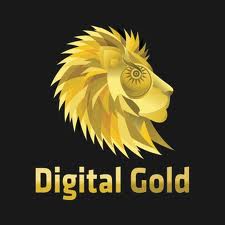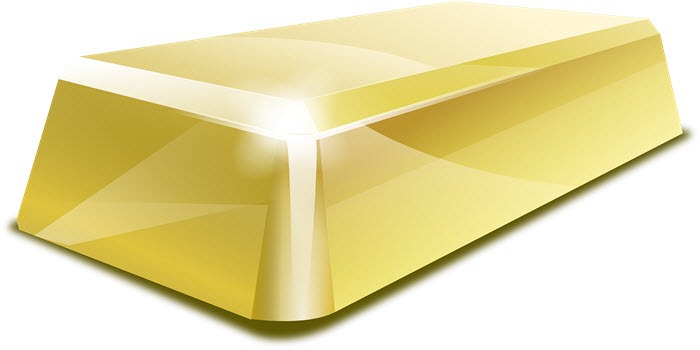Digital Gold
Digital Gold Defined
 Digital gold is an electronic form of currency based upon troy ounces of gold. If you hold digital gold, your holding is directly representative of gold held on deposit or in custody by the digital gold provider.
Digital gold is an electronic form of currency based upon troy ounces of gold. If you hold digital gold, your holding is directly representative of gold held on deposit or in custody by the digital gold provider.
Also known as Digital Gold Currency (DGC), it can be exchanged for the underlying physical gold at any time.
What are the aims of DGC?
In order to encourage a global economy, and freedom of markets, many economists feel that a single global currency is a necessary step, and the lack of one a stumbling block. The main aim of DGC is as a global and borderless currency. Consider if all goods and services were priced in terms of the weight of gold; there would be no need for separate currencies, and huge sums of money would not be made and lost because of currency moves or political manipulation.
Also, as gold is considered a store of value, holding DGC is assumed to protect the value of assets, offering protection against inflation, currency devaluations, and market sentiment.

How does DGC work?
Being considered as a currency, it is easiest to think about a DGC account as operating like a bank account. A DGC account holder deposits cash which is held in a separate account for his benefit. You can’t touch that cash, hold it, fold it, or put it under your mattress unless you withdraw it. But while it is in your account, you can transfer it to another account holder to pay for goods and services.
DGC works in exactly the same way, though the account holders must both hold accounts with the same DGC provider to pay and receive DGC.
Though DGC is not a currency in the conventional sense of the word, it can be transferred between DGC account holders easily and freely. This is an important point to remember. DGC can only be as a currency by DGC account holders, whereas a traditional currency can be used by anyone – governments, companies, private individuals – and be transferred between different banks and institutions.
How to buy DGC?
Every DGC provider offers the ability to purchase digital gold, and then to use the DGC to pay for goods and services provided by other account holders. Increasing numbers of companies are opening DGC accounts to offer extra ways of paying them and expand their customer base.
Accounts are easily opened online using a debit or credit card, or a direct bank transfer. Of course, depending upon the size of your DGC purchase, there may be money laundering regulations to pass, but in essence, account opening is fast and efficient, often completed within minutes.
What are the risks?
Even when you have cash in your pocket, or in the bank, there are risks. We tend not to consider the risk of our money being stolen or lost, but the risk is there. With DGC, there are also risks to take into account, though many of these are no different to those you take every day with your traditional bank account.
Exchange Risk
DGC acts just like any other currency, moving up and down against other currencies. This risk is no different to the risk that a holder of a foreign currency based account would have when measured against his domestic currency.
Risks of Management
If management decisions turn out to be poor, the cash in your bank account could suffer. Likewise, your DGC deposit could deplete if the management of the DGC provider makes poor decisions. When choosing a DGC provider, due diligence should include investigating the corporate governance that the provider employs. Self-certified providers do not have their security or deposits checked by an external auditor. Many choose not to open an account with a provider unless it is audited by an independent party.
False Reporting
The regulation of DGC providers is not like that of banks and other financial institutions. What a DGC provider says often has to be taken as a matter of trust by the market. Even in a regulated environment, stories of false reporting, or false accounting leading to business collapse are not unheard of (remember Enron, WorldCom, Polypeck, Barings Bank, and Lehman Brothers?).
To lessen this risk, it is important to conduct proper research.
Political Risk
Perhaps the biggest risk, yet often overlooked, is the political risk of owning gold. Even though the DGC account holder doesn’t hold the gold directly, the provider will have gold deposited in vaults on the behalf of its account holders. It is possible for a government to confiscate gold held in vaults in its country. This might happen because of war, or perhaps a change of government. Germany confiscated gold from all the countries in invaded during World War II. Iraq tried to do the same when it invaded Kuwait in the early 1990’s.
More recently e-gold was forced to sell $20 million of gold by the United States Department of Justice before then having its assets frozen in 2007: meaning that account holders had no access to their accounts and their money.
In conclusion
Owning a DGC account can be a convenient way to own a position in gold and use that to pay for goods and services without having to first sell gold. However, it’s important to research the market and prospective account providers before taking the steps to become a DGC account holder.